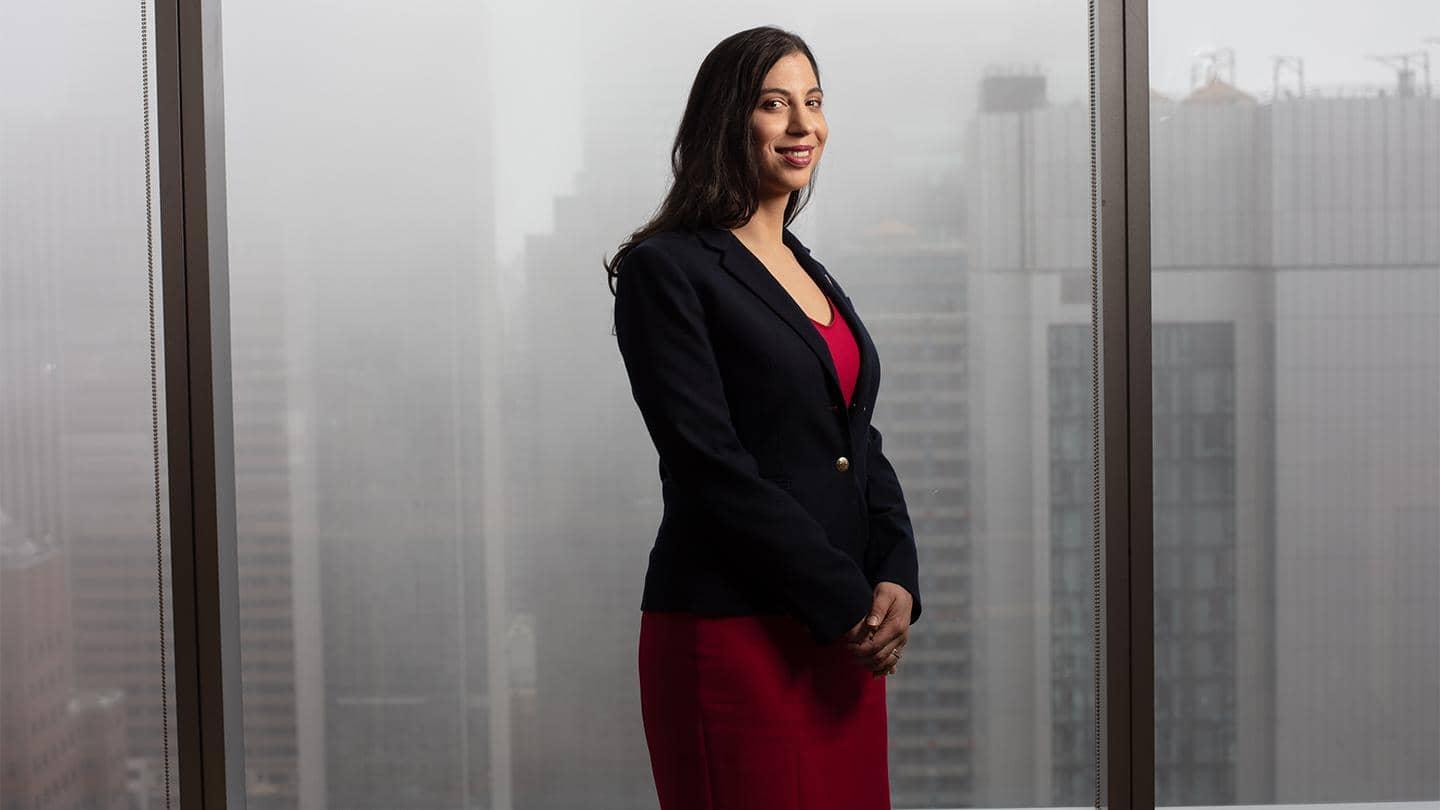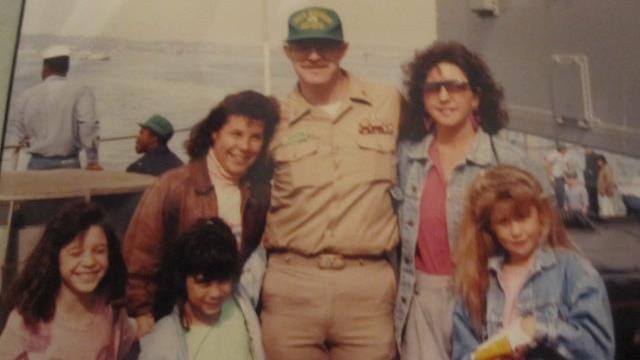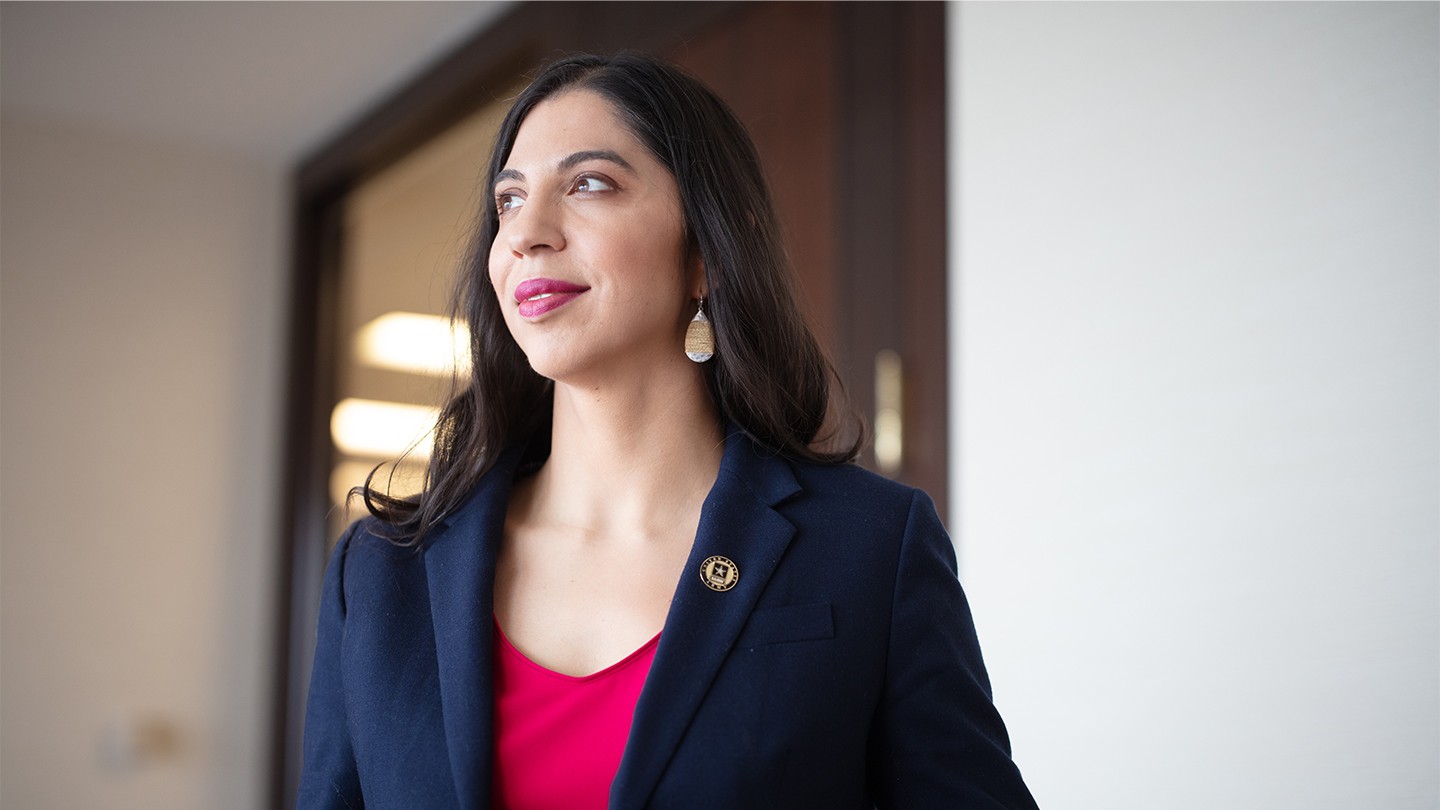
Impact
Insights: why extending support for US veterans “makes business sense”
Tiffany Daugherty joined the United States Army straight from school, spending two years as an air traffic controller which saw her serve in Korea. After a successful transition into the civilian world of work, initially as a careers adviser, she began helping other former servicemen and women into work and is now Programme Manager for Military and Veterans Outreach at Barclays, based in New Jersey.
As the bank extends the support offered to US veterans and their families, she tells us why recognising their skills and aspirations “will make Barclays stronger”.
When my dad left the military, he starting working for the local post office. I was about 12 years old at the time. At school, I remember hearing this boy making fun of the new mailman with the limp.
I remember how it made me feel. I was angry, but also shocked by the concept that he didn’t know what a giant my dad was. He’d been in charge of weapons systems on naval fighters and responsible for training new recruits, and here was this kid making fun of him, with no understanding of who he was or what he’d achieved.
When I went on to serve in the military myself, the value that former military personnel can offer became even more clear to me – as well as the need to educate society about it.
From serving to civilian life
I began serving right out of high school at the age of 17 as an air traffic controller and served until I was discharged on medical grounds in 2002. After leaving the army, I spent a decade in education working as a careers counsellor.
I still had many friends serving at the time and my partner deployed six times so I was always very close to it. I saw people struggling to transition into civilian work and this inspired a career change.

Tiffany (second from the left) with her family. Her father, Gary served in the US military
I went on to work for the Wounded Warrior Project, a charity that supports and empowers wounded military veterans. Working with them allowed me to use my training and passion to help other veterans after they had finished their service.
I spent nearly four years with the charity, and continued my work with veterans for a US-based payments company, before joining Barclays earlier this year as Programme Manager for Military and Veterans Outreach, based out of the bank’s campus in Whippany, New Jersey.
Barclays offering support to veterans
It’s an exciting time to be joining Barclays because having run a successful military outreach programme in the UK for some years, we are now beginning to work more closely with military veterans and their families in the US. I’m only eight weeks into my new role, but I’ll be helping drive the direction of that intervention.
We have learned a lot from the UK, but the US is a very different landscape and the sort of help we will be offering might differ. Overall, we will work with our colleagues across the bank, including human resources and the Barclays Military Network, to recruit, develop, and retain military talent – and we also aim to serve the broader community as well.
Some of the work is already underway. We have supported veteran entrepreneurs, families and jobseekers through community engagement and fundraising, including support of charity Travis Manion Foundation, an organisation that supports the families of veterans, and the NYU Tandon Veterans Future Lab – New York’s first business incubator for military veterans.
Only 1% of Americans serve in the military and that number is decreasing. That is why it is so important that we continue the education, not just in terms of highlighting the value of former military service personnel to managers and recruiters, but also making sure we understand the culture and experience of former military personnel.
This means understanding not just their skills, but their aspirations. For example, of the 200,000 people leaving service each year in the US, half go on to college and finish their schooling, so one thing we’re looking at is how we reach veterans on campus.

Tiffany Daugherty at Barclays’ office in New York
Hiring veterans makes business sense
It’s not charity to hire veterans, it makes business sense – they have so many skills that can be crucial to an organisation like Barclays.
A 2017 Development Economics study commissioned by Barclays found that while we expect to see a deficit of soft skills in our labour market, former military personnel are significantly outperforming their non-military counterparts in those soft skills, including oral communications, teamwork, managing and motivating others, problem solving, and more.
Not only that, but veterans engaging in education after service have a higher grade point average as well.
Veterans often have skill sets that, put very simply, others don’t possess. Having people like this, with diverse perspectives, gives businesses a genuine competitive advantage.
Businesses are catching on to this too. What has really changed from the peak of unemployment rates for veterans in 2012 is that industry has realised the value in recruiting from the forces, and now so many companies are actually competing for top military talent. It’s good to see but there’s a long way to go.
We want to focus efforts towards women – not just those who serve in the military but also the spouses of military personnel, more than 90% of whom are women.
In the UK, a new Barclays initiative will support spouses of military personnel into work with a pilot programme based at the Royal Naval Dockyard at Faslane, Scotland, and at Barclays’ Glasgow campus in conjunction with the Naval Families Federation.
Why this matters to me
Across the bank, Barclays has supported more than 7,000 military leavers with their transition into civilian work since 2010, including over 700 hired directly as employees into the bank so far.
It matters to me that Barclays cares and wants to be a company that understands what members of the armed forced bring when they take off the uniform.
I also think a commitment to our veterans is a matter of national security. It is important to me that those who have raised their hand to serve their country have options afterwards. I feel passionately that serving in the military was a good choice for me, it taught me how to work, showed me how to become a great employee and an engaged member of society.
It means a lot to me that those who have proven themselves and worked hard have access to opportunities to rise. It means the world because they will make our company stronger.